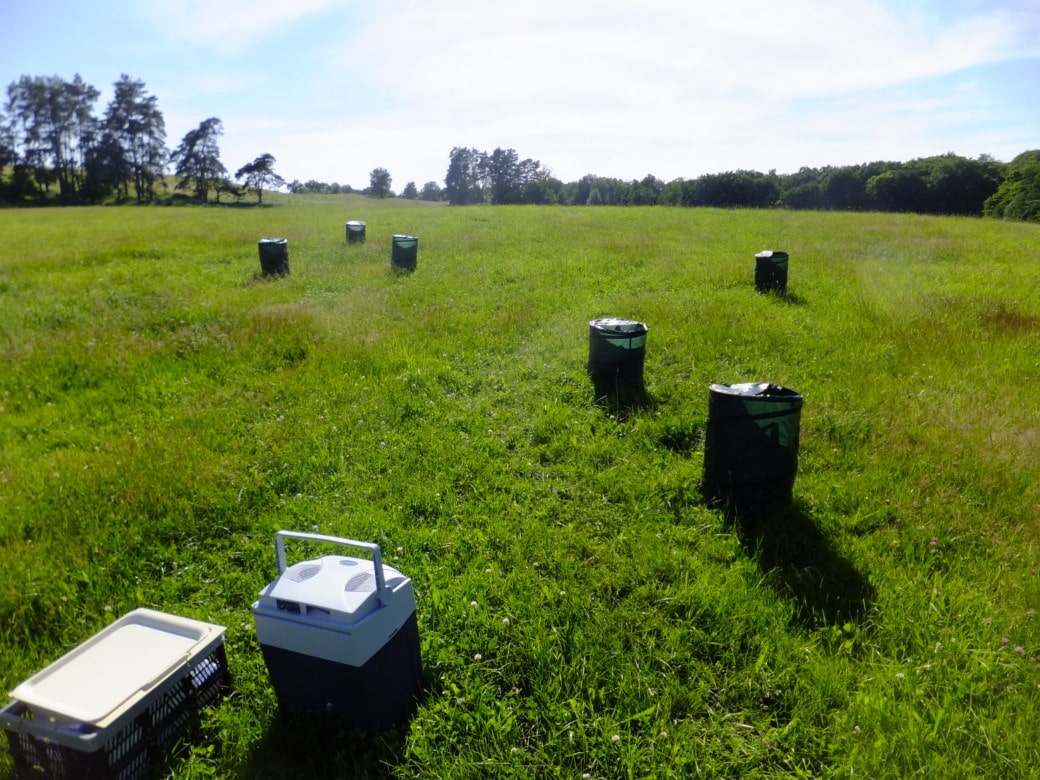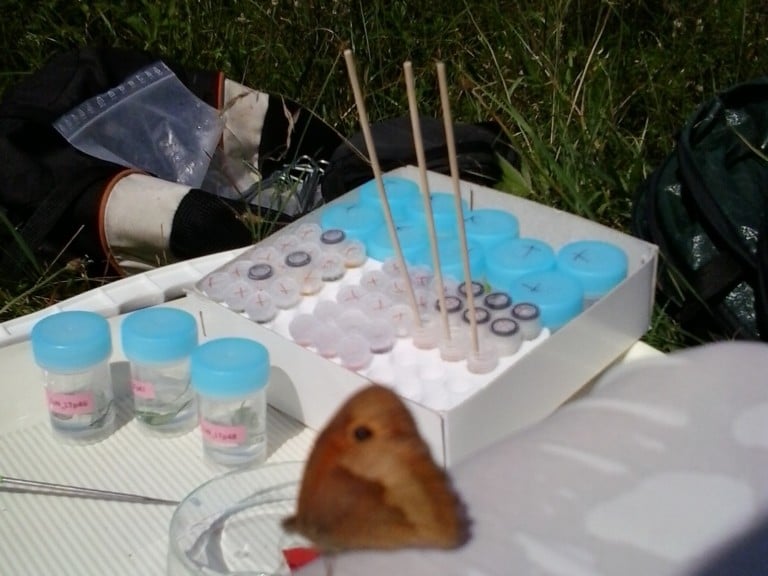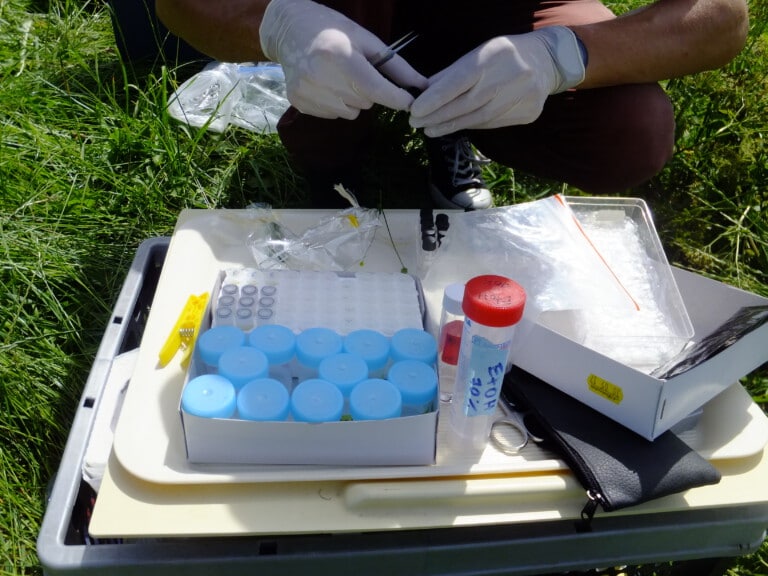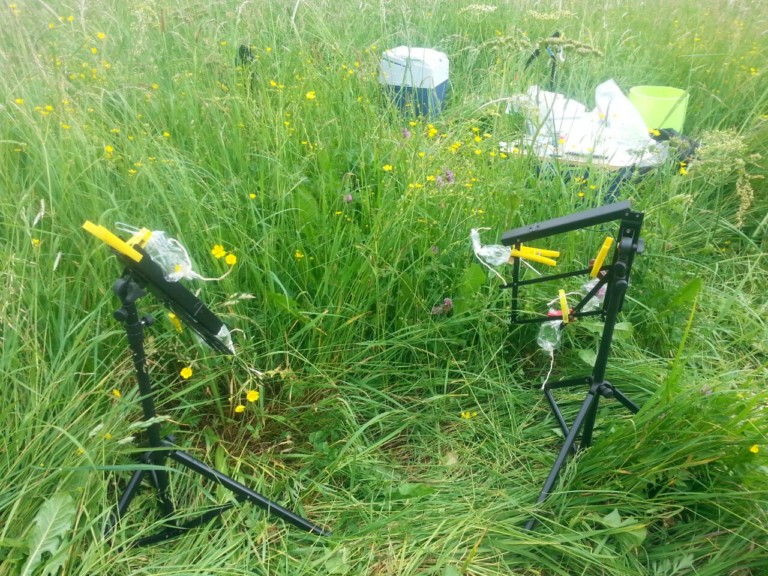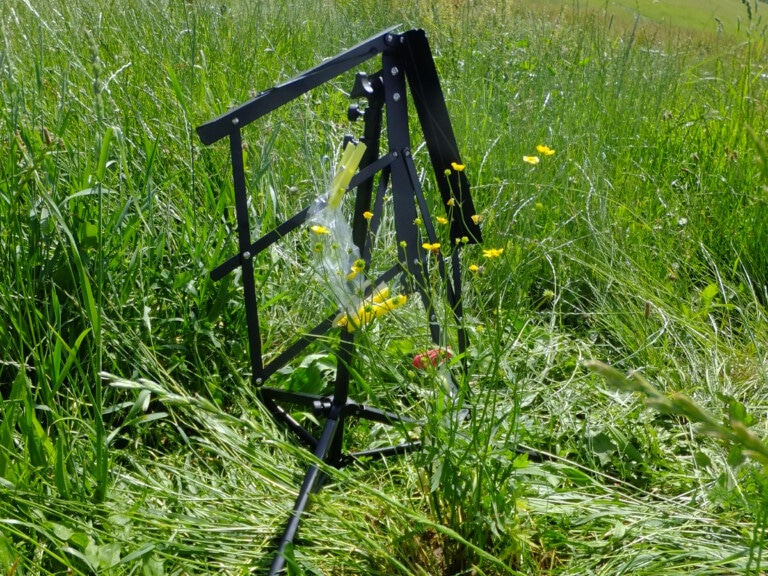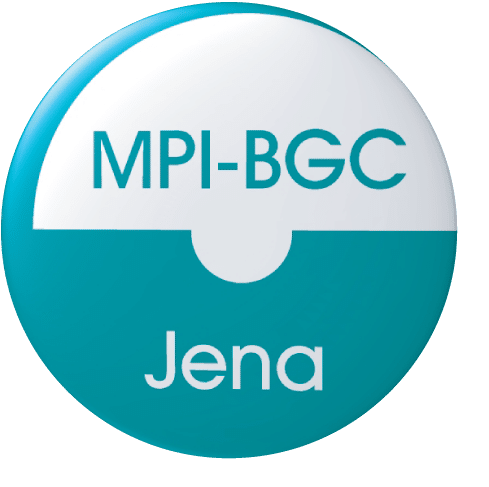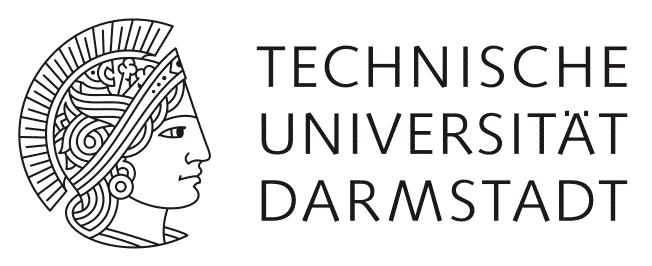Linking organismal and genetic diversity of floral microbiomes to ecosystem properties and functional plant traits
Bacterial communities associated to above-ground plant parts are crucial for plant health. The composition of bacterial communities associated with above-ground plant parts may be shaped by source communities such as soil bacteria but also by plant traits such as the availability of carbon and nitrogen or the composition of secondary metabolites. Although flowers are directly linked to plant fitness, bacterial colonizers of the anthosphere are less well characterized and their ecological roles are less well understood compared to bacteria associated with leaves.
Additionally, the determinants of their diversity as well as their responses to environmental gradients such as variation in land use intensity are unknown.
By exploiting the hierarchical organization of the Biodiversity Exploratories, we are planning to investigate the organismal and genetic α-, β- and γ- diversity of floral microbiomes as a function of land use, plant diversity, and functional flower traits such as floral scents and the availability of carbon and nitrogen in order to understand links between these different levels of biodiversity.
These data and results will allow us to gauge the relative importance of environmental and plant-based factors. Thus, our results will provide a novel perspective on associations between bacteria and flowers and help to understand effects of anthropogenic alterations of the environment on organismal and genetic diversity.
